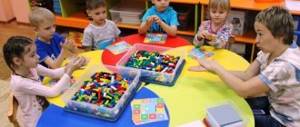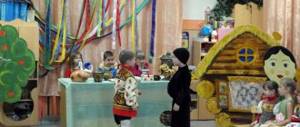Family traditions: what is it?
To define what a family tradition is, let’s first define what it means – “family”. According to the Big Encyclopedic Dictionary, it is “a small group based on marriage or consanguinity, whose members are bound by a common life, mutual assistance, moral and legal responsibility.” This means that in a full-fledged unit of society, relatives not only live under the same roof, but also love each other, take care of each member, and spend time together. If some activity or action is repeated repeatedly, passed from one generation to another, then it becomes a custom of this kind.
Family customs are not necessarily something grandiose and large-scale. Even modest weekly rituals that are established in one union or another can be considered a tradition. For example, cleaning on Saturdays, having breakfast together on Sunday mornings, or watching cartoons with the children on Fridays.
Moreover, the habit of wishing each other good morning, kissing when meeting or saying goodbye, calling that you have arrived safely at your destination can also be attributed to the norms accepted in this unit of society.
Types of family traditions
The list of what can be classified as family traditions can be endless. However, they can be conditionally divided into general ones, which are inherent in many people in different variations, and completely unique, specific rituals.
The first group includes such actions as:
Joint celebrations
In most homes in Russia, on Birthdays, New Years, and Easter, a large circle of relatives and close friends gather around a richly laid table to congratulate the birthday person or spend the outgoing year.
These days, it is customary to present gifts and souvenirs, write congratulations, sing songs and dance, make toasts followed by drinking alcohol, which of course does not benefit the nation.
Joint meeting of important events in life
At a wedding, housewarming, graduation, birth of a child, they also invite all their relatives and friends to share their joy with them. And of course, such a sad event as the death of one of the household members also brings together all relatives to accompany the person on his last journey and support each other in the grief that has befallen him.
Family Council
For many people, it is customary to discuss daily or at least once a week in a small circle how the day went, what events happened, share their thoughts on this matter, give advice or simply empathize from the heart. Plans for the weekend and the near future are also discussed here. Such close, frank communication is very unifying and allows all members of the family to feel their importance and significance for the rest.
Traveling together
If circumstances permit, many spend their holidays together, if possible going to the sea or to another city. And there are those who prefer annual trips to the dacha in the summer, where outdoor recreation is combined with work responsibilities. Any such trip brings a lot of positivity to each participant, which strengthens the relationship between household members.
Photos for memory
I want to capture pleasant events on photo cards so that, if desired, I can return to the memorable day at any time. Photo shoots, which are now fashionable, can become a good tradition, especially in families with children. After all, every age of a baby has its own charms, and time flies so quickly that you won’t have time to come to your senses. In addition, long joint preparations usually take place for such an event, and the child will perceive the shooting itself as an adventure.
Joint attendance at various events
Cinema, theater, exhibitions, museums, festivals - it's all very interesting and educational. If everyone in the house is committed to developing their personality, then household members will never be bored with each other. So visiting cultural or entertainment events together is a very good and useful custom.
The list of other common family traditions can be very long. After all, this also includes the smallest daily habits, as well as all religious rituals and national characteristics associated, for example, with marriage or initiation into religion. Russia is a multinational country, and each nation has its own historical customs.
Specific customs include those features that are unique to your social unit. For example, you like to eat only oatmeal for breakfast, or don’t go to bed until dawn on Friday.
In addition, there are those actions that developed on their own, and there are those that were specially introduced. In any case, this is exactly what is repeated in one house with some frequency.
How to create a family tradition?
Traditions are almost “man-made” activities. We create them ourselves. Let your child feel like he is the master of his life. Let him come up with an activity that the whole family will do. Even if it is an ordinary tea party every Sunday, it will still give the child strength and faith in his influence on the world around him.
By creating traditions, we create life. We fill it with the content we want. If family customs are beautiful and active, your child’s life will be the same. By accustoming him to traditions that are filled with meaning, you model the future of the baby. Thanks to them, he will strive for the best.
It is important that traditions do not turn into a prison for children. The main thing is that the child himself wants to participate in family life. Otherwise, it will create negativity and only push him away from his parents. You cannot keep your child at the table simply because “we are having a family dinner.” Parents must be flexible and take into account the wishes of their children. There is no need to force customs. It’s better to talk to everyone together, discuss what everyone likes and choose what suits both mom, dad, and son.
The role of family traditions: what does it mean to observe them?
If we highlight the main positive theses, they will probably sound like this:
- Traditions give a feeling of stability and inviolability of marriage for spouses.
- Develop respect for elders.
- They instill a desire for work and order.
- They rally and unite relatives.
- They allow you to feel like an integral part of something big, strong, what we call a social unit.
What are family traditions for children?
Compliance with established customs is especially important for children, because it gives a feeling of stability, and therefore safety. Children love when something is repeated many times; it is good for their psyche and makes the child calm and balanced. This is why doctors so strongly recommend following a daily routine.
The following traditions will be especially useful for children:
Reading bedtime stories and singing lullabies to babies
Evening reading not only develops the child’s imagination, but also puts him in a calm mood, appropriate before bed, and the mother’s voice always calms and lulls him to sleep.
Cooperative games
In the age of computers, televisions and an endless amount of entertainment, it is very easy to keep a child busy. However, the warmest memories from childhood will be those when the baby played with his parents. This could be board games or outdoor activities, the main thing is that everyone close to you takes part in the game.
Household duties
It is good when each member, even the smallest one, has some responsibilities around the house. This does not have to be a fixed labor duty. Activities can be changed and each time a new task can be offered. Invite your child to wipe the dust during one cleaning session, and the next time to use a vacuum cleaner. And even kids are happy to handle such an assignment as watering flowers.
Family meals
Have breakfast together at least on the weekends, if you can’t during the work week. At this time, you can at the same time share how the week went, and also plan a joint vacation in the next two days.
Kisses and hugs
Psychologists say that to feel happy you need at least eight hugs a day. And children need even more. So hug your kids on any occasion. And a goodnight kiss will be a wonderful end to the day for both the child and the parents.
Preparing for the New Year
For many adults, one of the most magical moments of childhood is the New Year holidays. You can create a fairy tale with your child, decorate a Christmas tree together with themed songs, make souvenirs as gifts for your family, write letters to Santa Claus. After all, the baby can do what many adults have forgotten how to do - believe in miracles.
All these and many other traditions will allow children to form the right attitude towards marriage as one of the main elements of their lives. Already as adults, they will carry into their young unit of society exactly those foundations and principles that they learned from childhood.
Consultation for parents “Family Traditions”
Family traditions
- these are, first of all, holidays that are celebrated by all family members and, of course, the child’s birthday; gala dinners on weekends, when the whole family is gathered and receives a festive service. This could be a tradition of planting a tree or going out of town on New Year’s Eve to decorate a live Christmas tree. It is a tradition to visit exhibitions, theaters, and museums with your child. This includes playing games together and congratulating relatives. Traditional hikes, walks and picnics in nature. Compiling your pedigree and family albums. Collecting and holding family concerts.
Tradition 1. Family holidays.
Do you think holidays are necessary for children in the family?
Yes, a child needs air for full development. A holiday for a child is not the same as for us adults. A holiday is an event in a child’s life, and a child counts his days from holiday to holiday, just like we do, his years from one important event to another. And vice versa, “this childhood would be dull and gray if the holidays were thrown out of it,” wrote Konstantin Ushinsky.
-How do you organize children's parties in your family?
Oddly enough, adults often organize children's parties for themselves. Adults have their own interests and conversations, but a child at such a holiday is bored and offended, everyone has forgotten about him. However, if a child is left at a common table, he becomes a witness and participant in adult conversations, then he gets used to being the center of attention, which develops immodesty and swagger in him.
It should also be remembered that you should not try to force him to perform against the will of the child: to sing or recite poetry. The child himself will express a desire to sing or dance if it happens to him during the game or forfeit.
Do you think it is necessary to decorate an apartment or room for the holiday? What does this give to the child?
Yes, it is advisable to decorate. This creates a certain mood. And it is important for both adults and children to take part in this.
On birthdays and holidays, it is customary to give gifts to children; they love and look forward to them.
What gifts do you give your children?
Gifts should be a little oversized, but in moderation. Each toy should develop the child’s thinking, attention, and memory. It’s good to give children sports toys: balls, jump ropes. For the development of fine motor skills - pencils, plasticine. In this case, attention should be paid to how
the child
accepts
the gift and
thanks
him for it.
On a child’s birthday, it’s good to take a photo of him alone or with his family.
In many families, there is a tradition of marking the child’s growth on the door frame - let him see how much he has grown over the year.
To make your child’s birthday memorable, you need to think through the program in advance: games, entertainment, attractions, competitions, a concert. The holiday will be decorated with surprises and fairy-tale characters, in whose costumes adults can dress up. The success of a children's celebration depends on the invention and imagination of adults.
By celebrating holidays in the family, we show children an example of how we relax and spend our leisure time. Having matured, our children will rest just as we do. Let no one in your home feel lonely and unwanted. Involve your child in making gifts for relatives. This will plant the seeds of kindness in your child.
Around each of us are people, relatives with whom we are connected in the history of the human race by the same blood. And each of us is a successor of our kind. And the roots of each family, like the roots of a tree, go far into antiquity. And that family is strong who remembers and protects their ancestors.
Tradition 2. Drawing up a pedigree of your family.
-Try to make a pedigree of your family. Start with yourself - Who has the most numerous family?
— Do you know where your parents and grandparents are from?
-Who came up with the name you bear?
— Who came up with the name for your child? Does he know about this?
It will be very good if in your family you begin to collect the history of your family. This will be a kind of bridge between the generations of your ancestors and descendants. Plant your family tree - the tree of your family. This will become the most precious piece of the legacy that we can and should leave behind. This will be your biography, simply and clearly retold for your grandchildren.
Tradition 3. Family archives.
It's not the past, it's always tomorrow. The family must have its own archive - certificates of honor from grandfathers and fathers, the history of their merits, their work, the history of the family and surname. After all, over the years, our grandchildren will want to know how we lived. But the life given to us is short by nature, but it is in our power to leave a memory of it.
Tradition 4. Family album.
This huge meaningful space of life, on the one hand, is simple and understandable to a child, on the other hand, mysterious and amazing.
Selecting photographs and designing the pages of a photo album is exactly the communication that an older preschooler needs in his joint activities with his parents. A specific image in a photograph is associated with a particular story from the life of family members, which arouses the child’s keen interest and stimulates its memorization.
Tradition 5. Family outdoor recreation
.
Tell me, which of you in your family has a tradition of traveling out of town, to the dacha with your child?
It's no secret that nature has a huge impact on the development of a preschooler's personality, provides the opportunity for good communication with the child, and walks in nature have a beneficial effect on human health. How nice it is to get together and go with your family out of town, to the country, where you can wander along forest paths with your child, listen to the voices of birds, watch the life of insects, admire the beauty of the surrounding nature, and play natural games with your child (“Who lives where”, “ Guess the tree from the description”, “Which tree does the leaf come from”, “What grows where”). You can invite your child to draw interesting things in nature from life, using plywood for this purpose and sitting on a tree stump. How good it is to read poetry lines that suit the location in nature, collect natural materials with children: pine cones, acorns, twigs, driftwood, and make fun crafts at home. And it’s simply great to have a snack in a forest clearing (when leaving, don’t forget to pick up your trash, teaching your child to behave correctly in nature, to take care of and protect our common home - the forest).
Tradition 6 Family visits to theaters, museums, exhibitions.
How many of you regularly go to museums and theaters with your children? Man has always had a desire for beauty; every nation has its own culture, its own customs, its own traditions. We, adults, must help introduce children to the large and complex world of beauty, nature, and art. Visiting museums should be a holiday for the whole family.
Tradition 7. Collecting.
It is very good if the family has a tradition, but if not, then you can offer to collect some collections at home, especially after visiting museums. As a result of this, the child awakens the need for creative activity, the ability to appreciate beauty and respect the work of people.
Yes, of course, you can sit a child at a table and teach him to write numbers, but we must remember that learning is the task of primary school, that early learning leads to a deterioration in the mental development of children (intellectual and personal), which manifested itself in the mass unpreparedness of preschoolers to schooling. Our task is to help the child successfully enter the modern world and take its rightful place in the system of relationships with other people. And here the emotional communication of the child with his parents, joint games and various events organized in the family, including collecting, are of great importance.
— What can a family collect?
A variety of natural collections will captivate and interest the child. These are cones and pebbles, shells and driftwood, various pieces of glass. It is good to collect stamps, candy wrappers, beads, etc. Visiting various exhibitions and museums can give you a boost in this type of activity.
Tradition 8. Games with a child
-Tell me, what games and how often do you play with your child? What type of activity is the leading one in preschool childhood?
We can say with confidence: childhood is a game, a game is childhood. Childhood is given so that we prepare the child to enter a rather complex social life, so that he feels like a person among people, is filled with social emotions, experiences, ideas, so that spiritual life begins to move in him. And the game helps us with this. Currently, serious attention is paid to the gaming activities of children, since it is the game that creates favorable conditions for personal development.
We, adults, must approach the issue of children's play very carefully and pay serious attention to it, allocate a place for play in the daily routine, must not violate the child's freedom of play, and change our position during the game in accordance with the role we have taken on.
Play is a child’s life, not preparation for life. The game should become traditional in every family.
There are a lot of games and toys. You should carefully and thoughtfully approach their selection. You need to play various games: board, active, verbal, educational. Good games like lotto, dominoes, chess. We advise you to definitely play games with natural and waste materials with your child. For example: “Guess which plant the seeds come from”, “Who will be who”, “Who was who”, “What can fly”, “Find something similar to an apple”, etc.
https://xn—- dtbhtbbrhebfpirq0k.xn--p1ai/detsad/raznoe/file/19904-konsultatsiya-dlya-roditelej-semejnye-traditsii
(Publication date: 12/14/2015)
Zhuravleva Marina Nikolaevna
teacher of kindergarten No. 71
Co-author: Kamakina Elena Sergeevna
Description of family traditions of different countries
Of course, every society has its own historically established customs. Let's talk in more detail about what is accepted in other states.
In Russia
Since ancient times, traditions have been honored and protected in Russia; they have been an important part of the life of both the common population and the nobles.
One of the main customs was a good knowledge of one’s clan, all one’s ancestors up to the tenth generation. In an aristocratic environment, family trees were necessarily compiled for each surname, which listed all the ancestors with first names, patronymics, last names and titles. Stories from the lives of our ancestors were passed on from mouth to mouth, and with the invention of the camera, photographs were passed on. Until now, many families carefully preserve old photo albums, gradually supplementing them with modern cards.
Respect for elders is one of the pillars of education in Rus'. In our country, unlike Western countries, it is not customary to send parents to live out their lives in boarding houses and nursing homes. Children take care of their elderly until their last day. And after their death, it is customary to remember departed relatives on the day of death and birthday, and to care for their graves.
Another Russian feature that demonstrates respect for one’s family is the assignment of a patronymic to a child. This is a tribute, first of all, to my father. It was also often possible to come across a “family” name, that is, often found in this family, when a child is named after one of the relatives.
The transfer of heirlooms by inheritance was also widespread. Moreover, these are not necessarily jewelry that cost a fortune. These can be simple, but dear to the heart things - interior items, cutlery. Often the wedding dress was passed from mother to daughter.
Almost all of the above traditions have been preserved in our society to this day. But many, unfortunately, are practically lost. For example, professional dynasties, when a craft was deeply studied and its secrets were passed on from generation to generation.
A good trend has become a return to roots and age-old traditions. "Russian House of Genealogy" offers assistance in compiling a family tree of your kind. They have a staff of more than five hundred genealogists working all over the world, who will certainly find any archival documents where this or that surname is mentioned. Also, experts not only compile a pedigree, but also teach this difficult craft. A wide selection of designs will allow you not only to create a tree for yourself out of interest, but also to purchase a family tree book as an original and useful gift.
In Great Britain
This is a country that sacredly honors its customs, especially for aristocratic dynasties. Traditions are observed in everything: from the daily rituals of morning oatmeal and evening tea to the concept of how to raise children.
One of the peculiarities of the British is to instill in their children strict control over their emotions. Saving face for a true gentleman is as important today as it was a couple of centuries ago.
In Italy
Italy is a very patriarchal state. Almost 90% of all enterprises there are related, that is, passed on from father to son. In addition, the surname in a given state is not limited to a narrow circle of the closest relatives; all relatives are an important part of the large clan.
On holidays, the whole family always gathers around a richly laid festive table, jokes, laughs, and shares news.
To America
Despite the fact that Americans are mostly workaholics and very career-oriented, many social units have three or more children. An interesting tradition is to take your baby with you everywhere, even to parties and get-togethers with friends. It is believed that such early integration into society will help the child in adulthood.
Historically, family traditions are an integral part of the life of any society in every state. They are like cement when building a house, they bind all relatives and allow them not to lose common interests. So follow existing customs and create new ones, then there will always be an atmosphere of love and friendship in your home.
Summary of the parent meeting “The role of family traditions in raising a child”
Marina Rovodzyanova
Summary of the parent meeting “The role of family traditions in raising a child”
Purpose of the meeting
- determine the place and significance of family traditions in a child’s life;
— offer practical recommendations on the formation of family traditions,
— to promote the revival of the best domestic traditions of family education, the restoration of the traditional way of life.
Tasks:
• to form an active pedagogical position of parents, to attract them to actively participate in extracurricular leisure activities;
• generalize and disseminate the positive experience of upbringing with the help of traditions;
• update the importance of family cultural values for the development of the child;
• analyze the presence of traditions in modern families.
Form:
Round table, master class on making a “Family Wish Card”
Equipment:
PC, multimedia projector, screen.
Board design: Epigraph of the meeting
“The role of family traditions in raising a child”
Meeting agenda:
1. The role of family traditions in the formation of the personality of a child of primary preschool age.
2. Family holidays and their meaning for the child.
3. Master class.
Progress of the meeting.
Introductory speech by the teacher.
- Good afternoon, dear parents!
-I am grateful to you that, throwing away all your worries and affairs, you came to kindergarten for friendly communication. I'm sure we'll have a good time this time.
Dear parents! Today we have gathered to talk about family, family traditions and their importance in the upbringing and development of a child.
For a long time, people talked about home and family with a smile and love. Legends, fairy tales, proverbs and sayings have survived to this day. Let's remember them together. I will say the beginning, and you finish.
1. Away is good, but... (at home is better).
2. There is discord in the family, and at home... (not happy).
3. Family is the key to... (happiness).
The family gives the child the main thing - what no one else can give. Raising a child begins with the relationship that reigns in the family between parents. Habits similar to those of adults are deposited in the minds of children. After all, children’s behavior is modeled on the example of copying.
Children are raised not only by their parents as such, but also by the family life that develops.
It is very important for a child to know that he is trusted, to feel important and needed. Joint activities instill in children a sense of responsibility, confidence, increase self-esteem, develop positive emotions: a feeling of joy, satisfaction, but most importantly, bring them closer to their parents, brothers, sisters and other family members. The most striking element of family education is family traditions.
Family traditions bring all relatives closer together, making a family a family, and not just a community of relatives by blood. Home customs and rituals can become a kind of vaccination against the alienation of children from their parents and their mutual misunderstanding.
Maintaining trust in the family is another good tradition. Trust is the ability to honestly and directly discuss any, even the most complex, topics with each other. Maintaining mutual trust in the family is one of the most important tasks of parents.
Family traditions and rituals:
- allow the child to feel the stability of their lifestyle:
“whatever the weather”, what is planned will take place in your family;
- give him a feeling of confidence in the world around him and security;
- encourage optimism and a positive perception of life, when “every day is a holiday”;
- create a unique childhood memory that your child will someday tell his children about;
- allow you to feel proud of yourself.
Every family has family traditions. There are many such traditions - you just need to take a closer look at the life of the family and call the usual things in loud words. A reverent and attentive attitude to rituals is especially important if the baby is sick, upset or offended. The seriousness and respect with which adults treat the child’s habits, which they themselves created, contributes to the development of his sense of self-worth. He learns to respect his words and promises, to be consistent, and to keep his word.
If you say the word “childhood” and close your eyes, then along with your loved ones, your family, something special will appear in your mind, unique only to your family. This “something” is a family tradition. And it is remembered only because it was repeated many times, firmly settled in the memory and is already inextricably linked with a certain reaction to any event. What traditions live in your home? Surely those that you remember in childhood, which were painted with bright colors of various impressive little things.
I suggest the game “Add Rays”
Try to name a few traditions. Which you know don't have to be yours and our sun will shine brightly. We miss him so much right now.
Parents call one by one, I help...
1. Bedtime story.
2. Pies - on the festive table.
3. Saturday cleaning, when roles are distributed: who should vacuum the carpets, who should wipe the dust, who should wash the floors. And after that the smell of cleanliness throughout the whole house.
4. Joint readings.
5. This is the evening when everyone gathers for evening tea and tells each other about the events of the day.
THANK YOU!
So the sun is shining - good.
There are traditions based on the seasons. Every spring, participate in Earth Day by picking up trash in the forest. And after that, go into the clean forest to listen to the birds. Make feeders in the fall. In winter, place treats in these feeders. Just a month before the New Year! - write a letter to Santa Claus with requests and “promises”.
In one family, these could be evening conversations with parents and grandparents about their lives, about how the country lived in those years when they were children.
And of course the holidays: New Year, March 8, February 23. And the most important holiday is birthday.
A birthday for a child is an event in a child’s life. What can you do to make it memorable for your child?
(PARENTS SPEAKING)
1. You can prepare invitations with your child (make an applique, draw, you can prepare invitations in poetic form (come up with poems yourself).
2. Think about how to decorate the apartment (this will create a festive mood).
3. Think over a birthday scenario.
Celebrating holidays in the family, we show children an example of our relaxation and leisure time. Having grown up, our children will rest just like we do.
A good tradition in many families is reading at night. How long does it take to read a story to a child before bed?
- It takes 5 minutes if you read a sheet of printed text slowly.
— 5 minutes is not enough or is it too much?
— What can be cultivated in a child in 5 minutes of daily calm communication?
Educator:
Dear parents, you see for yourself that 5 minutes of communication every day allows you to raise: A HUMAN BEING!
Please listen to the parable.
A father and son were sitting on a bench in the courtyard of a huge house. The father is approximately 65 years old, and the son is 30. The son was reading a newspaper. Suddenly a nightingale flew in from somewhere and sat on the flowers. The father asked his son: “Son, what is this?”
Son: Nightingale, dad.
The nightingale jumped from one flower to another.
The father asked again: “Son, what is this?”
Taking a deep breath, shaking off the newspaper, with laziness in his voice, the son answered again: “It’s a nightingale.”
After a moment, a bird flew in and sat on the lawn. The father asked his son again: “Son, what is this?”
Now angrily, throwing the newspaper onto the bench, the son answered with a rude voice: “Dad, you’re already tired of it with your stupid question.” Have you never seen a nightingale and don’t know what kind of bird it is? This is a nightingale. Nightingale. Clear?
The father said nothing, got up and went into the house. After some time he came with a notebook in his hand. This was his diary. Having opened the required page, he gave it to his son and said: “Read....” Loud!
The son read: “Today my five-year-old son and I were sitting on a bench in the yard.” Suddenly a nightingale flew in. My son asked me 29 times “What is this?” I smiled and hugged him every time he asked me the same question. It gave me pleasure every time to explain to my little naive man that it was a nightingale. After reading these lines, the son sighed, tears welled up in his eyes. He hugged his father, kissed his forehead and whispered quietly: “Forgive me, daddy, forgive me for being stupid.” And the father kept looking deeply at the nightingale, who was carefreely jumping from one flower to another.
What do you think about it?
Parents' answers.
In order for a child to always feel the affection and love of his parents, we need to spend at least one or two hours with the children. And then we will be able to pass on to our children the best that we have in our families.
Don't forget just three main rules:
1. A recurring event for a child should be bright, positive, and memorable;
2. Tradition is a tradition to always be observed;
3. You can use smells, sounds, visual images - the main thing is that there is something in this traditional action that affects the child’s feelings and perceptions
When creating individual traditions for your home, it is worth remembering that any rules are good if they make life better and do not complicate it.
In addition to traditions of spending holidays together, relaxing together, your family may also have everyday traditions. After all, they can not only be observed, but also created. “Wish Cards” can become a tradition for your family. This card can help you understand who in the family wants what, what they dream about, or simply share your dreams. And dreams determine our future!
Master class “Map of wishes”
All the necessary material lies in front of you.
Take a sheet and put a picture of a family or one person in the middle. Next, we divide the sheet into sectors: The upper left corner is money and wealth. Bottom left dreams and desires that you find difficult to fulfill. The upper right is love and family relationships. The bottom right is traveling and spending time together. Your deepest desire may also be here. Such cards can be large and in A-4 format. Also on this map the whole family can display their dreams, desires and contribute.
Or each family member can make their own card. You need to hang this card in a visible place and constantly look at it.
Classical music plays while the work is being done.
It is very important that the child is an active participant in family traditions, and not an observer, so that he prepares and lives this tradition together with everyone, only then will it become a tradition for him and his future family.
But it is impossible to live happily alone!
Always be together, take care of love,
Drive away grievances and quarrels,
I want my friends to say about you:
“How nice your family is!”
To summarize, we can say that:
Good family traditions have a huge impact on raising children, primarily because they unite the family.
Research by psychologists, sociologists, and teachers shows the conditions in which children were born and raised, leave an imprint on their entire lives and even predetermine their fate.
To remember our meeting, I would like to give you booklets on the topic “Family Traditions” with useful tips.
I hope that they will help you in preserving family traditions.






